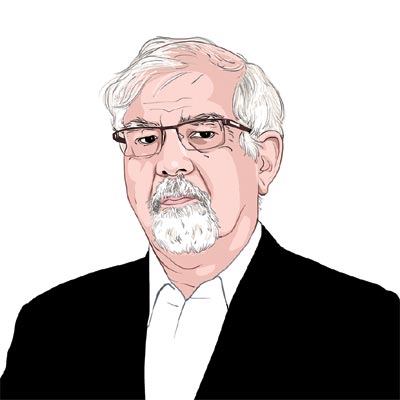Opinion What Subbarao really wanted to say
Public officials should refrain from offering unsolicited advice; private parties should be honest in their analysis
In its concerted fight against inflation,the RBI has raised the repo rate 10 times,and by 275 basis points,since March 2010. At the time it started raising rates,the RBIs wrong but immensely preferred inflation indicator,the wholesale price indicator,was flashing an annual inflation rate of 10.4 per cent. In June 2011,after its hawkish statements and dedication to sacrifice growth,and much else,WPI inflation was flashing 9.1 per cent. In parallel,the CPI,a more relevant inflation index,has shown a decline from 14.9 to 9 per cent.
Central Bank governors are known to be elliptical in their pronouncements. They are supposed to know better,and because they are mortals,they often go wrong in their policy,and forecasts. Wouldnt it be interesting,and revealing,to know what central bank governors really are thinking? Herewith what Subbaraos statement might have been if the 1984 Right to your Thoughts was fully in place.
Dear Persons: We at the RBI are dedicated to delivering both growth and stable low inflation. We have been doing our best,though I must admit that we have not succeeded in our efforts,to date. However,I must frankly admit that I have not been helped by various people providing armchair or self-indulgent advice. I have advice for them.
Wannabe chief economists at foreign investment banks : You have been the trend-setters in the hysteria to raise interest rates. While all your counterparts around the world use either the CPI or the GDP deflator to measure inflation,you persist in following the RBI folly of using the WPI. Why do you do so? My explanation is that you are trying to help your clients a bit too much,that is,you are talking your book. The logic is very simple. Your clients can borrow in the US short term at virtually a zero rate of interest. Let us call it 1 per cent. If I raise the repo rates,it affects interest rates across the board (after all,as you say,that is what monetary policy is supposed to do!). You then get your clients to invest in safe un-Greek Indian government securities and obtain a large,and increasing,7 per cent spread. Normally,an extra spread is associated with currency depreciation so economists,and bankers,can be happy with the notion that there is no free lunch. However,the bankers argue how India is a good growth story,which it is,and how the rupee will not only not depreciate but appreciate! So it is a win-win story for your clients,while it may not be the right policy for India. So,can you shut up,please?
Kaushik Basu,Chief Economic Adviser,GOI : You are a very welcome addition to the policy-making body in India. Your fame precedes you,and your record as a micro-economist is at least first among equals. It is also hugely welcome that you are now espousing more market-oriented policies than before,for example,cash transfers rather than corrupt government intervention programmes. However,try as I might,I cannot find much useful academic output from you on anything even remotely related to macro-economics. It is never too late to learn,but in the meantime,can you stop offering me unsolicited advice on exchange rates,and interest rates,and stop making forecasts on inflation?
C. Rangarajan,former RBI governor,now head of PMs Council of Economic Advisers : Sir,you are an institution in India,and a pioneer in policy-making on many fronts. Many people seek you out for sage advice,as I myself do. But,sir,it will make my task easier,and my analysis more objective,and my policy more rational,if you did not pre-announce your version of my policy. If I go against your pre-announced policy,civil society and the media will ask what I know that you dont? And as you know we all know much less than you do,especially when it comes to monetary policy. I would also hasten to add that India might be in the same predicament today as in 1995. In your fight against inflation,you may have overly tightened in 1995 and Indian GDP growth went into a huge slump for the next seven years. It would be unfortunate if the same thing happened under my watch.
It is suggested by many that your boss,the PM,speaks too little; and many say that you speak too much. Perhaps India can benefit from a happy compromise the PM should speak a lot more,and that be balanced by you speaking somewhat less.
Subir Gokarn,Deputy Governor,RBI : The RBI regulates the bank deposit savings rate in India (recently raised to 4 per cent after 19 years at 3.5 per cent). Fat cat bankers gain from this repressive policy of low and fixed deposit rates; pensioners and depositors lose immensely from this stupid regulation. Yet,my deputy Subir Gokarn had the gall to state that the RBI may not deregulate this rate because a lot of people see this [fixed savings rate as a safe and reliable source of monthly income. This implies that a free market savings deposit rate will decline after deregulation an impossibility given the present inflation scenario. Subir knows,or should know,that the rate can only increase with deregulation. So Subir,either stop talking or stop being disingenuous.
I do not know if all the shutting up will lead to a better outcome. But policy will be helped with an honest discourse. Civil society,and media,and even investment banks can and should say what they want (but like honest analysts,they should have full disclosure of their vested interests!). My colleagues in the government should consult me in private. And perhaps soon we can move towards a policy that is actually in the interests of growth with low and stable inflation.
The writer is chairman of Oxus Investments,an emerging market advisory and fund management firm





